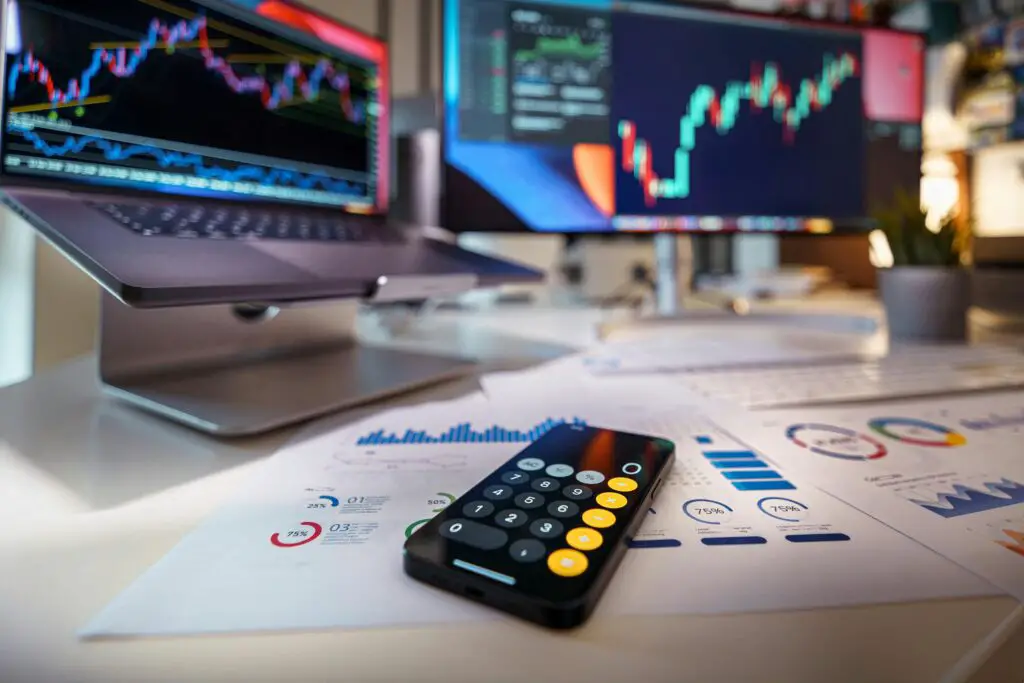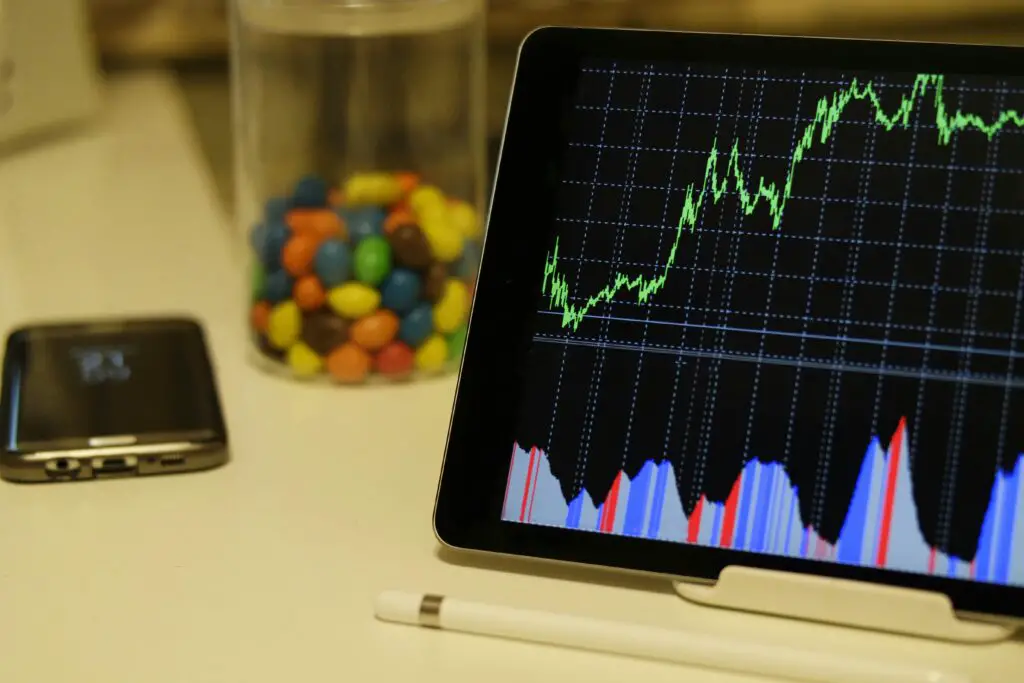Gaining knowledge of forex trading can lead to many income opportunities. For those seeking to increase their earnings, attain financial autonomy, or enhance their comprehension of worldwide markets, forex trading presents an adaptable and lively environment to realize these objectives. Read also
Knowing the Fundamentals
Overview of the Forex Market
The foreign exchange market is open for business five days a week, 24 hours a day, in the world’s largest financial hubs. With a network of banks, brokers, and other financial institutions, forex trading occurs on an OTC basis, unlike stock markets with centralized exchanges.

An explanation of pairs of currencies
Currency pairs, such as the euro against the US Dollar or British Pound/Japanese Yen, are traded while trading forex. The fundamental currency is the first one in the pair, while the reference currency is the second. The amount of the pricing currency required to buy one unit of the fundamental currency is shown by the price of a currency pair.
Brokers Function in Forex Trading
Brokers serve as intermediaries for traders and the interbank market, giving them access to the tools and trading platforms they need to complete transactions. Selecting a trustworthy broker is essential to having a profitable trading experience.
How to Begin Trading Foreign Exchange
Creating an Account to Trade Forex
Establishing a trading account with a broker is necessary before you can begin forex trading. This involves completing personal forms, proving your identification, and funding your account.
Selecting an Appropriate Forex Broker
When choosing one, investigating a broker’s reputation, regulatory standing, trading circumstances, and customer support is essential. Seek out brokers with dependable platforms, affordable fees, and reasonable spreads.
Comprehending Trading Platforms
A trading platform is a program that lets you manage your trading account, study markets, and make trades. Well known platforms with attractive user interfaces and extensive features include Meta Trader 4 and Meta Trader 5.
Important Terminologies in Forex Trading
Leverage, Lots, and Pips
Pips:
The currency pair’s most minor price fluctuation is often expressed to the fourth decimal place.
Many:
Standard units of exchange for money. An average deal is one hundred thousand units of the fundamental currency.
Utilization:
It enables traders to manage more considerable holdings using less capital.

Ask and Bid Prices
Price of Bid:
The cost that a currency pair will sell for in the open market.
Requested Price:
The current price at which a combination of foreign currencies can be exchanged.
Margin and Spread
Disperse:
The difference between the request represents the brokers profit and offered prices.
Margin:
The sum of money needed to start trading using leverage.
Formulating a Trading Strategy for Forex
Comparing Technical and Fundamental Analysis
Technical Evaluation:
It involves forecasting future movements by examining price charts and patterns.
Basic Examination:
Focuses on news, events, and economic indicators that affect the value of currencies.
Techniques for Risk Management
Effective risk management involves putting stop loss orders, reducing leverage, and diversifying your transactions to protect your capital.
Formulating a Trading Strategy
Your trading goals, risk tolerance, and techniques are described in your plan. It lessens the emotional toll that trading takes by helping you maintain focus and discipline.
Examining the Foreign Exchange Market
Overview of Technical Analysis
Technical analysis anticipates future price movements using technical indicators and past price data. Standard tools include moving averages, trend lines, and support/resistance levels.
Important Technical Measures
Averages that Move:
Price data should be smoothed to reveal trends.
Index of Relative Strength:
Determines how enormously prices change.
Bollinger Bands:
Show price volatility and possible reversals.
Overview of Fundamental Analysis
To predict changes in currency prices, basic analysis examines economic indicators such as the gross domestic product, employment rates, and mortgage rates. Political developments and central bank policy also play essential roles.
Utilizing Instruments for Forex Trading
Software for Charting
Technical indications and price changes are shown visually by charting software. It supports traders in making decisions by assisting with trend analysis.
Calendars of Economics
Upcoming economic events and data releases that may affect the currency market are listed on economic calendars. Updated with these developments is essential to fundamental analysis.
Sources of Forex News
Reliable forex news sources help traders stay informed and make quick decisions by offering real time information and analysis on market circumstances.

Putting Trades into Action
How to Make a Trade
You must decide on a currency pair, the amount of your position, and the type of order before you can make a trade.
Types of Forex Orders
Order of Market:
It executes right away at the going rate for the market.
Limitation Order:
It executes at a price that is stated or above.
Halt order
It executes upon the price reaching a predetermined threshold.
Comprehending Trade Execution
Buying or selling a currency pair is known as trade execution. Seizing market possibilities requires prompt and dependable execution.
Taking Care of Your Trades
Choosing Stop Losses and Profit Points
Stop Loss:
An order to protect your capital by exiting a trade at a predefined loss threshold.
Make Money:
An order to secure your earnings by exiting a trade at a predefined profit level.
Keeping an eye on Available Positions
You can make the required adjustments based on market conditions by regularly monitoring your open positions.
Modifying Your Transactions
Trading adjustments include changing stop losses, take profits, or trade sizes in response to changes in the market and your trading plan.
Typical Techniques for Trading Forex
Reducing
Scalping is the practice of making multiple little trades to profit from minute changes in price. It is a trading approach where making decisions quickly is essential.
Traders by Day
To profit from intraday price swings, day traders initiate and close deals during the same trading day.
Trading in Swings
Swing trading requires patience and intelligence since it attempts to capture substantial price changes over days or weeks.
Advanced Ideas in Forex Trading
Hedging Techniques
To lower overall risk, hedging is taking positions to balance possible losses in other bets.
Trade Strategy Carry
By borrowing cash in a currency with a low rate of return and investing it in a currencies with a greater rate of interest, one can use the margin trade method to make money from the difference in the rate of interest.
Elevated Cost Trading
Trading with high frequency takes advantage of tiny price differences by executing numerous trades in milliseconds using complex algorithms.
The Mentality of Trading Forex
Controlling Your Emotions
To trade well, one must learn to regulate emotions like fear and greed, which can impair judgment and result in wrong choices.
Getting Rid of Trading Anxiety
Gaining confidence by instruction and practice lowers anxiety and enhances trading performance.
Establishing Trading Discipline
Maintaining discipline in trading entails following your strategy and plan regardless of the state of the market or your feelings.
Resources for Understanding Forex Trading
Both printed and electronic books
Numerous books, ranging from basics to advanced tactics, provide insightful information about forex trading.
Online Programs
Online courses offer organized learning environments with interactive content, tests, and video lessons.
Communities for Forex Trading
You may ask questions, learn from other traders, and share experiences by joining trading communities.
Avoid These Forex Trading Errors
Excessive Trading
Making too many transactions, often motivated more by emotion than strategy, is known as overtrading, which increases risk and the possibility of losing money.

Disregarding Risk Management
Neglecting to put risk management techniques into practice can lead to significant losses and capital depletion.
Following Losses
Chasing losses is making rash trades to recoup losses, often resulting in additional losses.
Conclusion
Gaining knowledge in forex trading necessitates perseverance, control, and ongoing study. You can successfully manage your risks, build a strong trading strategy, and grasp the fundamentals to navigate the forex market confidently. Recall that all successful traders were once beginners, so maintain your drive and never stop learning.